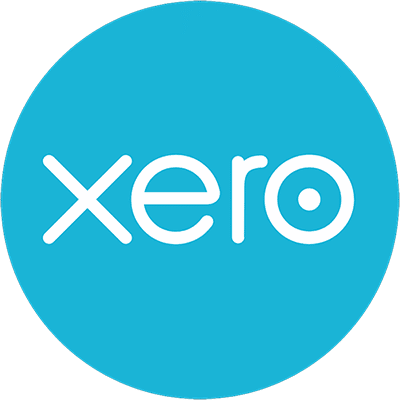When deciding on the best startup accounting software for your business, consider an inexpensive solution that offers the option to scale with your operations. During the early stages, look for basic features, like banking and A/R and A/P management. As your business grows, consider whether the software can accommodate advanced accounting needs, like inventory management and project accounting.
That said, here are our six best accounting software for startups:
- QuickBooks Online: Best overall accounting software for startups
- Zoho Books: Best mobile accounting app for startups
- Xero: Best accounting software for scaling to unlimited users
- AccountEdge: Best desktop accounting software for startups
- FreshBooks: Best for service-based startups
- Wave: Best free accounting software for startups
Best Startup Accounting Software: Quick Comparison
QuickBooks Online: Best Overall Accounting Software for Startups

Pros
- Access to a huge network of QuickBooks ProAdvisors
- Scalable plans
- Strong inventory management features
- Ability to track income and expense by class, location, or project
- Efficient bank reconciliation
Cons
- More expensive than comparable products
- Callback waiting necessary for customer service by telephone unless you upgrade to Advanced
- Unable to add additional users beyond those included in each plan
- Unable to compare estimated with actual project costs
QuickBooks Online is available in four subscription options, and prices are based on the number of users and the available features:
- Simple Start: $35 per month for one user
- Essentials: $65 per month for up to three users
- Plus (most popular): $99 per month for up to five users
- Advanced: $235 per month for up to 25 users
New subscribers can choose between 50% off for the first three months or a 30-day free trial.
QuickBooks Online is by far the most popular small business accounting software in North America—and rightly so with its easy-to-use interface and outstanding features. Nearly every bookkeeper in the US is familiar with QuickBooks, so you’ll easily be able to get bookkeeping assistance so that you can focus on your new business. Whether you want to do all the input yourself or leave everything to the bookkeeper, you’ll have no trouble finding a bookkeeper.
We selected QuickBooks as the best small business accounting software, in part because of its scalability for startups. You can easily upgrade plans as additional features and users are needed, with the advanced plan supporting 25 users. For startups in their early stages, the Simple Start plan is a great entry point. It provides essential basic tools, such as invoicing, expense tracking, and sales tax management. As your startup grows, you can consider upgrading to Essentials or Plus.
Another reason QuickBooks Online is our best startup accounting software is its strong integration capabilities. It connects to over 750 business apps, including our top QuickBooks Online integrations, to automate various workflows, including payment processing, advanced inventory management, and customer relationship management (CRM).
In our evaluation, QuickBooks Online excels in almost all accounting features, especially banking, A/P and A/R management, and inventory management. It earned a perfect score for integration and could have aced mobile accounting as well if users could use the app to enter and pay bills and record billable time.
If affordability is a concern, then Wave or Zoho Books’ free plan may be the better option, as QuickBooks Online took a hit in pricing because it’s a bit more expensive than most of the other software on this list. It also lost one point for customer support because you have to upgrade to Advanced to be able to contact phone support directly; in comparison, Zoho Books offers phone support in all paid plans.
QuickBooks Online is generally easy to use because of its intuitive and customizable dashboard. However, we docked points for ease of setup because it may take time to create a company file.
Zoho Books: Best Mobile Accounting Software App for Startups

Pros
- Highest-rated mobile app among all accounting software we’ve reviewed
- Free plan for startups with less than $50,000 in annual revenue
- Less expensive than similar accounting software
- Access to phone support and live chat included in all paid plans
Cons
- Unable to track fixed assets
- Project accounting and inventory management only available in the higher plans
- Professional or higher plan required to manage and track unpaid bills
Zoho Books offers a free plan for businesses with less than $50,000 in annual revenue, and the paid plans below reflect the monthly prices. There is a discounted rate if you pay annually.
- Free: $0 per month for businesses with less than $50,000 annual revenue (one user plus one accountant)
- Standard: $20 per month for up to three users
- Professional: $50 per month for up to five users
- Premium: $70 per month for up to 10 users
- Elite: $150 per month for up to 10 users and advanced inventory control features
- Ultimate: $275 per month for up to 15 users, advanced analytics, and inventory control features
If you need to add additional seats, the fee is $3 per user, per month.
Among all the accounting software we’ve reviewed, Zoho Books is the only one to ace our mobile app category, which is why it tops our list of the leading mobile accounting apps. Just like QuickBooks Online’s app, Zoho Books’ lets you invoice clients, accept payments, view reports, and assign expenses to customers or projects. However, Zoho Books can do more, such as entering and paying bills and recording time worked.
Also, unlike QuickBooks Online, Zoho Books has a free tier that is suitable for startups earning less than $50,000 in annual revenue. The free plan provides basic features, including invoicing and expense tracking, and as your business grows, you can upgrade to a paid plan to enable additional features, like project accounting and inventory management.
However, it may be difficult to find support when you eventually convert to an ERP, which will probably be required sooner with Zoho Books than with QuickBooks Online. The price of Zoho Books’ Ultimate plan is more expensive at $275 monthly for 15 users, especially when compared with QuickBooks Online’s Advanced plan for only $235 monthly for 25 users. QuickBooks Online also gives you access to assisted bookkeeping with QuickBooks Live, and Zoho Books lacks a similar service.
Zoho Books has excellent functionality comparable to QuickBooks Online, so it earned high scores overall in terms of features. It aced our mobile app and integrations criteria and has a high mark for ease of use, but it could have done better if the dashboard was customizable, just like in QuickBooks Online.
On the downside, it took a hit for pricing because you have to upgrade to the paid plans to activate essential features, like project and inventory management. It also fell short in customer support because of the limited network of Zoho Books Advisors, especially when compared with the vast network of QuickBooks ProAdvisors. However, we appreciate that Zoho Books provides a direct line to phone support, which is rare among accounting software providers.
Xero: Best Accounting Software for Scaling to Unlimited Users

Pros
- Unlimited users included in all plans
- Excellent project accounting features
- Strong inventory tracking features
- Fixed asset manager available
- Easy-to-understand bank reconciliation
Cons
- Limited customer support in the US
- No annual billing option for plans
- Limited mobile app
- Entry-level plan limited to 20 invoices and five bills
Xero offers three subscription options, and all include unlimited users and a fixed asset manager.
- Early: $20 per month for up to 20 invoices and five bills
- Growing: $47 per month for unlimited invoices and bills
- Established: $80 per month for unlimited invoices and bills plus project accounting
Before subscribing, you can access all of Xero’s features for free for 30 days to help you decide which plan best suits your needs.
Some startups scale quickly, and for them, we recommend Xero as the best accounting software. With Xero, you can add as many users as needed without additional fees. In other similar software like QuickBooks Online, only a certain number of users is allowed in each plan. What’s more, in other solutions like FreshBooks, only one seat is included in the base plan, and you have to pay an extra fee for each additional user.
Xero is also generally affordable, as you can send unlimited invoices for as low as $42 a month. If you are just starting and only manage a few clients, then you may do well with the Early plan for only $15 monthly. Again, you get unlimited seats with any tier.
On the downside, in addition to having limited customer support, it could be difficult to find an outside bookkeeper for support in the US, and it’s also likely harder to find support to convert to an ERP system down the road. For that reason, we recommend a provider like QuickBooks Online, which gives you easier access to those forms of support.
Xero aced our integration category and excelled in pricing because of its unlimited user access. It also did well in features, like general accounting, A/P and A/R, and project accounting. However, unlike QuickBooks Online, Xero doesn’t allow you to record recurring expenses automatically and combine multiple checks into a single deposit.
Additionally, Xero received low ratings for ease of use and setup and customer support. The onboarding wizard isn’t as intuitive as we expected, and its dashboard isn’t that customizable. Also, we hope that the provider considers providing phone support to users, similar to Zoho Books and FreshBooks.
AccountEdge: Best Desktop Accounting Software for Startups

Pros
- One of few desktop accounting software remaining
- Ability to track COGS and inventory effectively
- Ability to manage multiple companies
- Ability to track your business by departments
- Ability to track time and bill clients directly from time entries
Cons
- No mobile app
- Phone support as a paid add-on
- Not as easy to use as a cloud-based software
- Inflexible invoices
AccountEdge is available in three subscription options:
- AccountEdge Pro: $20 per month (for a single user only)
- AccountEdge Network Edition: $30 per month (for up to two users only)
- AccountEdge Hosted: $50 per user, per month
Add-ons:
- Bank feeds: $5 per month
- Phone support: $10 per month
- Payroll: $20 per month for unlimited employees
Whether you operate in areas with limited internet connectivity or you simply prefer the speed and reliability of desktop software, AccountEdge is a great choice. What makes it better for startups than other desktop software is that it is affordable but doesn’t compromise in features. For example, it can effectively separate inventory costs into the COGS and the cost of inventory on hand—something that other low-cost desktop solutions don’t offer.
AccountEdge costs only $20 monthly, while premium software like QuickBooks Enterprise costs over $100 a month. Although it doesn’t offer all of the advanced features of premium software, it provides essential tools needed by most startups. In addition to inventory management, it allows you to invoice customers and accept payments, enter and pay bills, create reports, and even track time and bill clients from time entries.
However, AccountingEdge isn’t that easy to use because of its outdated user interface. It uses flowcharts and desktop-based navigation, which isn’t as intuitive as cloud-based tools. If you want easy-to-use software for simple accounting needs, then consider Wave. However, if you need advanced features like inventory, we recommend Zoho Books or Xero.
Our rubric reveals that some of AccountEdge’s biggest strengths are pricing and inventory management, aligning with our explanation earlier. It also aced our integration category and did well in banking and reporting. However, we found some lapses in the other areas like A/R management, wherein you can’t modify the invoice color and personalize the customer message in your invoices. If you want fully customizable invoices, consider QuickBooks Online; or if you’re on a budget and needing just invoice generation, try Canva, one of our best free invoice generators.
Additionally, it received a low rating for ease of use and customer support because of its outdated user interface and lack of phone support. The only way to seek support is through email and browsing self-help guides. We’d like to see AccountEdge provide users with a mobile app.
FreshBooks: Best Accounting Software for Service-based Startups

Pros
- Strong project management features
- Gusto integration (additional fee) to support your payroll needs
- Unlimited invoices included in all plans
- Ability to track time and bill clients for hours
- Mobile app for accounting on the go
Cons
- Extra fees for additional users
- No inventory management features
- Unable to track and reconcile bank accounts without a live connection
- Unable to track income or expenses by class
FreshBooks offers four plans, which vary in terms of the maximum number of billable clients and the advanced features available, such as a dedicated account manager:
- Lite: $21 per month for up to five billable clients
- Plus: $38 per month for up to 50 billable clients
- Premium: $65 per month for unlimited billable clients
- Select: Custom pricing for unlimited billable clients and a dedicated account manager
All plans include one seat, with additional users available for $11 each per month.
We chose FreshBooks only for service-based businesses because it is focused on project accounting and has no features for inventory management. It allows you to create and manage projects and track their progress until they are completed. You can also create an estimate and convert it to a project once approved. If you bill clients by the hour, then FreshBooks has a built-in timer that lets you capture billable time, and when it’s time to bill clients, you can easily convert time entries to invoices.
Another useful project management feature in FreshBooks is the ability to compare estimated costs against actual costs, which is crucial for budget planning. QuickBooks Online also offers this feature but only in its most expensive plan. However, as mentioned earlier, FreshBooks can’t track inventory. For retail and other businesses that track inventory, QuickBooks Online or Xero is the better solution.
Additionally, FreshBooks becomes very expensive at $11 monthly for additional users—at 15 seats, it is more expensive than either Zoho Books or QuickBooks Online and isn’t nearly as powerful. If you are looking to accommodate a large number of users, we suggest Xero instead because it accommodates unlimited seats in all plans.
FreshBooks performed well in ease of use and earned a perfect rating for integration. Its biggest strengths in terms of features are A/P management and project accounting. It took a hit in some areas because of several limitations, including the inability to record POs, customize invoice templates, and manage inventory. These advanced features can be found in other software like QuickBooks Online and Zoho Books.
The software was also rated poorly in the other categories, including ease of setup and customer support. It has no company setup wizard, which could help users easily set up their company. Also, it can be difficult to find a bookkeeper who is proficient with the software, especially when compared with QuickBooks Online, which has a vast network of QuickBooks ProAdvisors. Nevertheless, we still praise FreshBooks for offering users phone support.
Wave: Best Free Accounting Software for Startups

Pros
- Free version for a single user with solid accounting features
- Extremely easy to set up and use
- Ability to create and send unlimited bills and invoices
- Easy to track income, expenses, and capitalized expenditures
Cons
- No live customer support in the free plan
- Not suitable for businesses with advanced accounting needs like inventory or projects
- Only one user in the free plan
- No stock or COGS tracking
Wave has a free version and a paid plan that costs $16 per month when billed monthly or $170 per year when billed annually. Both tiers include basic features, like income and expense tracking, invoicing, and a mobile app. The paid option, however, has additional inclusions, like bank feeds, unlimited users, and free unlimited receipt scanning.
If you wish to add unlimited receipt scanning to the free plan, you pay $8 per month. You may also purchase additional add-ons in both plans, including the following:
- Wave Payroll: $40 for tax service states or $20 for self-service states, plus an additional $6 per month, per active employee or independent contractor (read our Wave Payroll review)
- Wave Advisor: $149 per month for bookkeeping support
- Accounting and payroll coaching: $379 per coaching session and email support
We feel that Wave’s free plan, Starter, is great for recording the expenses involved in starting a business, which is why it’s best for startups during their organizational stage. It also allows you to send unlimited invoices, track bills, upload bank statement transactions, and print financial statements. Also, unlike Zoho Books’ free plan, Starter has no limitation in terms of annual revenue.
However, once you begin operations, you’ll likely outgrow it because its reporting capabilities aren’t as strong as QuickBooks Online, which allows you to track projects and net income by location or product class. Also, if you handle inventory, it doesn’t allow you to track your stock or COGS, so QuickBooks Online would be the better fit.
Wave doesn’t have advanced features, as it’s essentially designed for basic accounting. For instance, you can’t connect your bank accounts in the free Starter plan, and there are no project accounting and inventory features even in the paid tier. Wave might be sufficient for basic accounting like invoicing and bill management, but if your business outgrows these features, consider a more full-featured solution like QuickBooks Online.
It aced our evaluation of pricing as it’s free and scored well in ease of use given the minimalist user interface. It took a blow in customer service because it has no live support options, like phone support and live chat, in its free plan.
Its score for its mobile app was also subpar, as it can only perform basic tasks, like invoicing and payment processing. You can’t enter and pay bills, categorize bank transactions, and view reports on the go, which are all possible in more comprehensive software like Zoho Books and QuickBooks Online.
How We Evaluated the Best Startup Accounting Software
We rated the best startup accounting software based on the scoring rubric below, which is a condensed version of our internal case study. If you want to see a detailed breakdown of the feature category, then you might want to check out our case study.
5% of Overall Score
Software is rated based on its price for various levels of users, including one, three, and five users. It is also awarded points if it offers a free trial or discount for new users and if monthly vs annual plans are available.
53% of Overall Score
10% of Overall Score
5% of Overall Score
A good mobile app should be able to perform all the same functions as the computer interface.
20% of Overall Score
7% of Overall Score
We include the average user review score for each software collected from large third-party websites dedicated to the collection of user reviews, such as Software Advice, SourceForge, and G2.
Frequently Asked Questions (FAQs)
Accounting software helps startups manage their financial transactions, track expenses, generate invoices, and maintain accurate records. It streamlines financial processes, ensures compliance, and provides insights for better decision-making.
Accounting software helps startups create and manage budgets by tracking income and expenses, providing insights into spending patterns, and generating reports that aid in budget analysis and adjustments.
There is no one-size-fits-all answer as it depends on various factors like tax implications, regulatory requirements, nature of operations, and investor and lender preferences. Cash-basis accounting offers simplicity and can provide short-term tax advantages, especially if the startup has a lot of expenses. Meanwhile, accrual-basis accounting provides better financial visibility and a more comprehensive view of profitability by aligning revenues with the associated costs. To learn more, see our guide on cash-basis vs accrual-basis accounting.
Yes, QuickBooks is often considered a good choice for startups, and it’s a popular accounting software solution for businesses of various sizes. It offers a range of features that can be beneficial for startups in managing their finances efficiently. These include ease of use, scalability, integration with other tools, tax compliance, and available support.
Bottom Line
There are many excellent accounting software for startups, depending on the particular needs of your business. QuickBooks Online is a scalable solution if your company plans to become a midsize or large enterprise. If you often work remotely and need a strong mobile app, consider Zoho Books. Xero is best for startups with many users.
If you’re a service-based startup that intends to stay small, FreshBooks is worth looking at. If your company is in its organizational state and you’re looking to save money while also having access to unlimited users, Wave is a strong choice. If you prefer a desktop software, go with AccountEdge.



